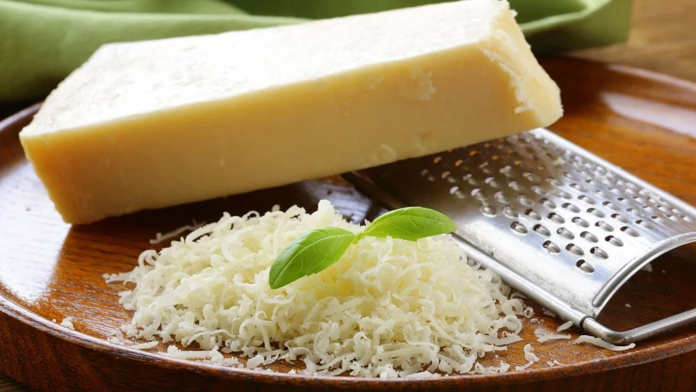Bone health is a significant concern, especially for women over the age of 40, as they are more prone to bone loss and osteoporosis. Various dietary and lifestyle choices can help maintain strong bones and reduce the risk of fractures. In recent years, parmesan cheese has gained attention as a potential secret weapon for combating bone loss. This article delves into the nutritional composition of parmesan cheese, examines its impact on bone health, and provides insights into whether it can truly be considered a valuable ally in maintaining strong bones for women over 40.
Understanding Bone Health and Aging:
Before exploring the potential benefits of parmesan cheese, it is essential to understand the connection between bone health and aging. As women age, their bodies undergo hormonal changes, particularly a decline in estrogen levels during menopause. Estrogen plays a crucial role in maintaining bone density, and its decline can lead to accelerated bone loss and an increased risk of osteoporosis.
Nutritional Composition of Parmesan Cheese:
Parmesan cheese is a hard, aged cheese that originates from Italy. It is renowned for its rich and distinct flavor, making it a popular ingredient in various dishes. Parmesan cheese is also nutritionally dense and contains essential nutrients that contribute to bone health.
- Calcium: Parmesan cheese is an excellent source of calcium, which is a vital mineral for maintaining bone strength and density. A 1-ounce serving of parmesan cheese provides approximately 331 milligrams of calcium, contributing to the recommended daily intake.
- Protein: Protein is essential for bone health as it plays a significant role in bone development and maintenance. Parmesan cheese is relatively high in protein, with around 10 grams per ounce, making it a valuable addition to a balanced diet.
- Vitamin D: Vitamin D aids calcium absorption and is necessary for bone mineralization. While parmesan cheese does not contain a significant amount of vitamin D, it can be consumed alongside other vitamin D-rich foods or through sunlight exposure.
- Other Nutrients: Parmesan cheese also contains phosphorus, magnesium, zinc, and vitamin K2, all of which contribute to bone health to varying degrees.
Parmesan Cheese and Bone Health Studies:
Research into the potential benefits of parmesan cheese for bone health is relatively limited, and most studies have focused on other dairy products. However, the existing evidence suggests that parmesan cheese may indeed offer some advantages in promoting bone health.
- Calcium Absorption: The calcium in parmesan cheese is highly bioavailable, meaning it is easily absorbed and utilized by the body. Several studies have demonstrated that dairy products, including parmesan cheese, promote calcium absorption and improve bone mineral density.
- Protein and Bone Health: Protein is crucial for bone health, and consuming an adequate amount of protein is associated with increased bone mineral density. Parmesan cheese, with its protein content, can contribute to the overall protein intake necessary for maintaining strong bones.
- Vitamin K2: Parmesan cheese contains vitamin K2, which has been linked to improved bone health. Vitamin K2 plays a vital role in regulating calcium metabolism and directing calcium into the bones.
Incorporating Parmesan Cheese into a Bone-Healthy Diet:
While parmesan cheese offers potential benefits for bone health, it should be consumed as part of a well-rounded diet focused on bone health. Incorporating the following elements into a bone-healthy diet can have a more comprehensive impact:
- Calcium-rich foods: In addition to parmesan cheese, include other calcium-rich foods such as dairy products, leafy greens, and fortified plant-based alternatives.
- Vitamin D sources: To enhance calcium absorption, ensure adequate vitamin D intake. Incorporate sunlight exposure and foods like fatty fish, egg yolks, and fortified dairy products.
- Balanced nutrition: A well-balanced diet with sufficient protein, fruits, vegetables, whole grains, and healthy fats is crucial for overall bone health.
- Exercise: Engaging in weight-bearing exercises and strength training can help maintain bone density and promote bone health.
Final Thoughts:
While the role of parmesan cheese in combating bone loss in women over 40 is not extensively researched, it does possess potential benefits due to its nutritional composition. Parmesan cheese provides calcium, protein, and other bone-essential nutrients. However, it is important to note that consuming parmesan cheese alone is not a magical solution to prevent or reverse bone loss. A comprehensive approach that includes a balanced diet, regular exercise, and other bone-healthy habits is necessary for optimal bone health.
Women over 40 concerned about bone loss should consult with a healthcare professional or a registered dietitian to develop an individualized plan that meets their specific needs. By incorporating a variety of calcium-rich foods, ensuring adequate protein intake, and focusing on overall bone-healthy habits, women can take proactive steps towards maintaining strong and healthy bones as they age. While parmesan cheese may contribute to this effort, it is just one piece of the puzzle in the quest for optimal bone health.





